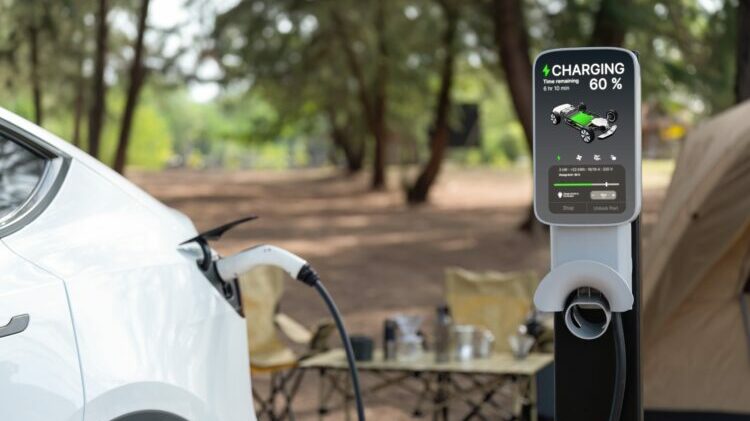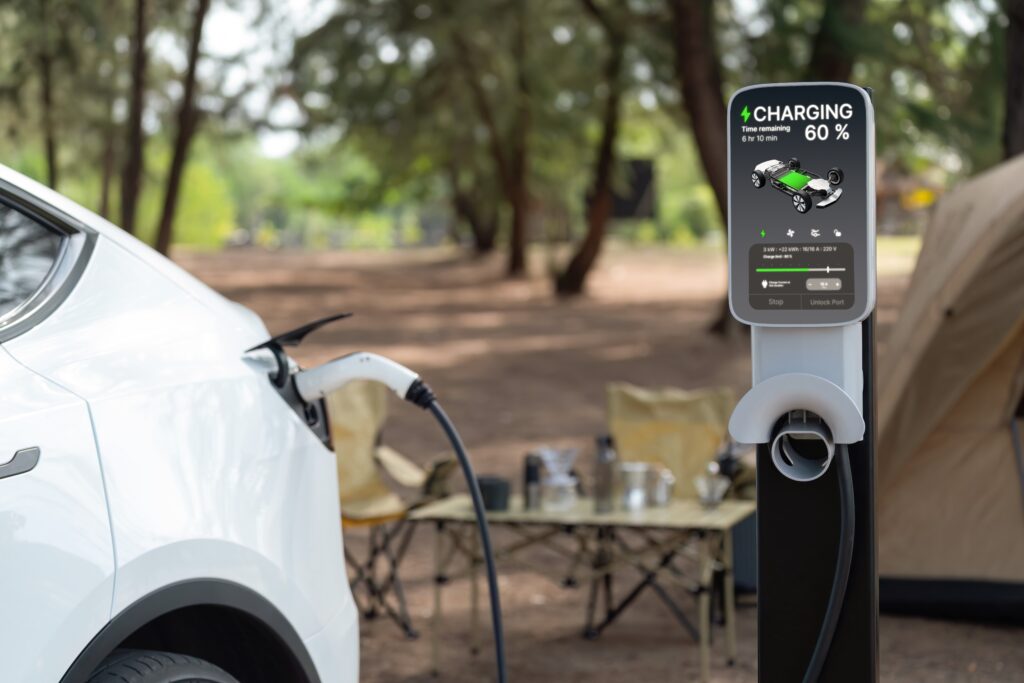
In 2023, 69% of travelers consciously sought more eco-friendly travel options, according to figures from the World Travel and Tourism Council (WTTC) and Trip.com Group earlier this year. Interest in rail travel is also on the rise, with new and more luxurious routes – such as from Paris to Berlin and the extensive Orient Express routes around Italy – quickly gaining popularity. TravMagazine speaks with travel providers who specialize in sustainability about their vision. Although sustainability is the – or one of the – most heard word(s) in recent years, it can be interpreted in different ways. For example, the emphasis can mainly be on the emission of harmful substances, but it can also refer to the entire way in which the travellers behave towards the natural environment and local population at their destination. Radically different Saskia Griep is founder and CEO of travel provider Better Places, which declared sustainability as one of its focuses when it was founded ten years ago. ‘Our sustainable tourism revolves around three pillars: people, planet and profit. When we started, the emphasis was on people and profit, but due to concerns about climate change, we shifted our focus to planet. Especially in countries where we help residents with our travels, the effects of climate change are the first to be noticed. To keep our planet liveable, we advocate radically different travel: closer to home, at a slower pace, and with a focus on the experience of the destination.’ 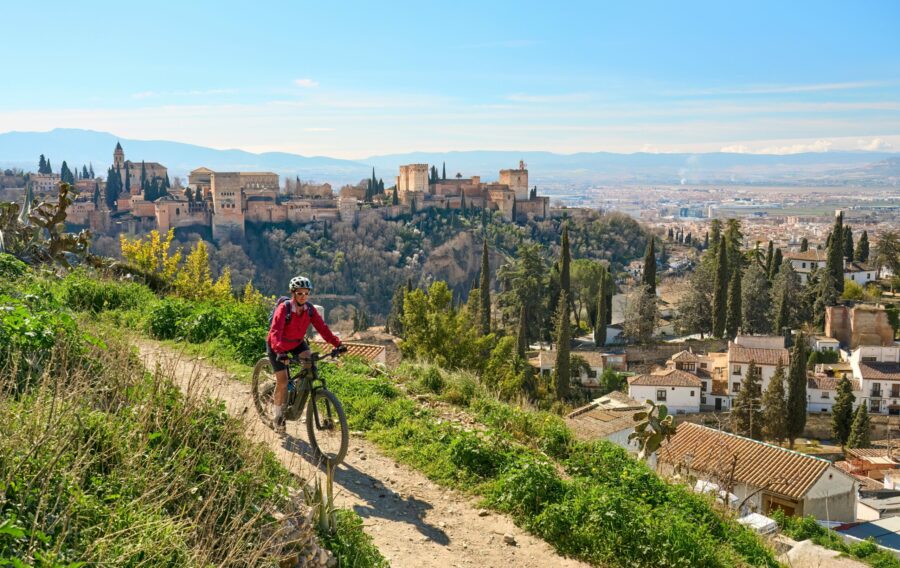 She continues: ‘Sometimes it seems as if people think that ‘sustainable’ is another word for ‘expensive’. Ten years ago, that was understandable, but not anymore. Sustainability is a way to improve the quality of our trips. You get something extra in return: a better experience, a special encounter, more adventure. Flying every year becomes less obvious. We see a growing demand for train travel, even to destinations such as Sicily, Sweden and Slovenia.” She continues: ‘Better Places wants to show that sustainability is not restrictive, but part of the travel experience. We have grown strongly in recent years. While our focus is not specifically on growth, but more on making our range more sustainable and satisfied customers and employees.’ The customer books a trip to Mexico. What distinguishes this Better Places journey from that of a ‘regular’ provider? ‘In concrete terms, making our offer more sustainable means that we make our trips as long as possible: at least eighteen days for long-haul destinations. We work with small-scale and sustainable hotels and offer excursions where meeting the residents is central. We avoid domestic flights and encourage travellers to eat plant-based more often when travelling.’ Who is the main target group at the moment? “Our customers range from couples around the age of 50 to families with older children. They appreciate our customization and the expertise of our local travel experts. We aim for satisfaction scores of nine or ten, which leads to repeat bookings and word-of-mouth referrals.” Better Places offers more than sixty different destinations. What were the biggest challenges the organization faced in creating a broad but sustainable offering? Griep: ‘To make our portfolio more sustainable, we have greatly expanded our range of trips within Europe. Flying to Croatia causes 501 kilograms of CO2 emissions, while a return trip to Indonesia quickly causes 7,031 kilograms of emissions. That’s fourteen times more. We have a climate action plan with concrete targets, including reducing our emissions by 55% by 2030 compared to 2019. Flying is way too cheap. The price you pay does not include the costs of environmental damage and air pollution. As long as those costs are paid by society instead of the polluter, it is difficult to get people out of the cheap plane and onto the more expensive train.’
She continues: ‘Sometimes it seems as if people think that ‘sustainable’ is another word for ‘expensive’. Ten years ago, that was understandable, but not anymore. Sustainability is a way to improve the quality of our trips. You get something extra in return: a better experience, a special encounter, more adventure. Flying every year becomes less obvious. We see a growing demand for train travel, even to destinations such as Sicily, Sweden and Slovenia.” She continues: ‘Better Places wants to show that sustainability is not restrictive, but part of the travel experience. We have grown strongly in recent years. While our focus is not specifically on growth, but more on making our range more sustainable and satisfied customers and employees.’ The customer books a trip to Mexico. What distinguishes this Better Places journey from that of a ‘regular’ provider? ‘In concrete terms, making our offer more sustainable means that we make our trips as long as possible: at least eighteen days for long-haul destinations. We work with small-scale and sustainable hotels and offer excursions where meeting the residents is central. We avoid domestic flights and encourage travellers to eat plant-based more often when travelling.’ Who is the main target group at the moment? “Our customers range from couples around the age of 50 to families with older children. They appreciate our customization and the expertise of our local travel experts. We aim for satisfaction scores of nine or ten, which leads to repeat bookings and word-of-mouth referrals.” Better Places offers more than sixty different destinations. What were the biggest challenges the organization faced in creating a broad but sustainable offering? Griep: ‘To make our portfolio more sustainable, we have greatly expanded our range of trips within Europe. Flying to Croatia causes 501 kilograms of CO2 emissions, while a return trip to Indonesia quickly causes 7,031 kilograms of emissions. That’s fourteen times more. We have a climate action plan with concrete targets, including reducing our emissions by 55% by 2030 compared to 2019. Flying is way too cheap. The price you pay does not include the costs of environmental damage and air pollution. As long as those costs are paid by society instead of the polluter, it is difficult to get people out of the cheap plane and onto the more expensive train.’
‘Our travellers have really searched for impact travel’
Fair2 Travel is a small specialist travel provider with, as the name suggests, a focus on sustainability, which is sometimes found via via, but mostly by customers who actively search online for ‘sustainable travel’. Fair2 Travel is also regularly present at sustainability fairs, such as the Triodos market. 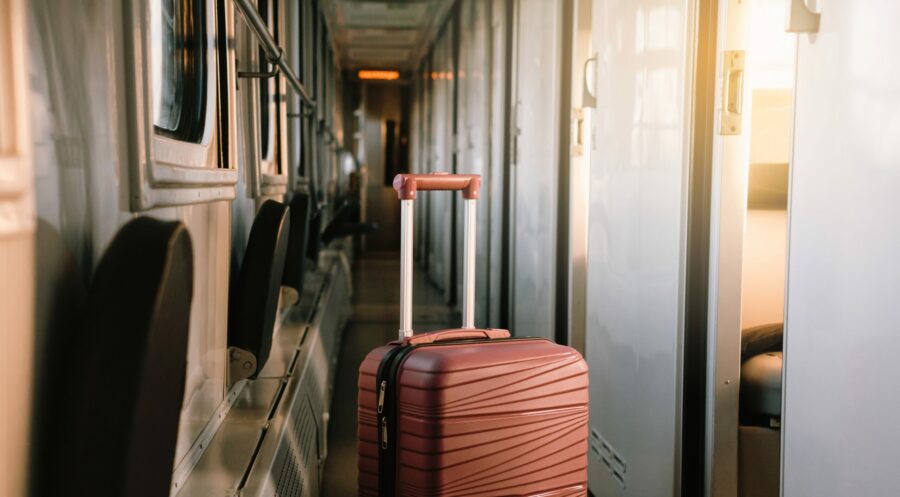 Caroline de Greeff, founder and managing director: ‘Our target group can best be described as people for whom sustainability is really important. Within this we see two types of travelers: the somewhat younger customers who love comfort and special experiences and like to stay in beautiful ecolodges, and on the other hand the somewhat older travelers who come to us because of the local encounters and being able to support local development. The latter group likes ‘homestays’ and eating with and with the locals.’ Which destinations do you book the most? ‘Bangladesh, Sierra Leone and Ethiopia, and we see the most enthusiasm for trips with many community-based activities, contact with local peoples and where you travel around with a local guide. For Europe, we are slowly seeing the rise of sustainable travel, without flying. In addition, most people specifically opt for a train journey.’ Sustainability cannot really be called a trend, but rather a theme that has certainly dominated the industry in recent years. Is De Greeff seeing a strong increase in customers? ‘We see more and more that people consciously choose us as a sustainable organisation. Of course, there are more and more travel organizations that include the aspect of sustainability in their arrows, but it is in our genes, it has been our starting point for more than ten years and our travelers are looking for impact trips and not necessarily for the cheapest possible option.’ What were the biggest challenges ‘along the way’? ‘Keeping details up-to-date with a small team, such as travel dates and prices, but also substantive routes. Of course, we want to continue to offer special authentic trips and have to do a regular quality check in the field of sustainability, and that with a small team is a challenge. We want to continue to ensure that all elements of a trip are as sustainable as possible, and not all countries understand this yet.
Caroline de Greeff, founder and managing director: ‘Our target group can best be described as people for whom sustainability is really important. Within this we see two types of travelers: the somewhat younger customers who love comfort and special experiences and like to stay in beautiful ecolodges, and on the other hand the somewhat older travelers who come to us because of the local encounters and being able to support local development. The latter group likes ‘homestays’ and eating with and with the locals.’ Which destinations do you book the most? ‘Bangladesh, Sierra Leone and Ethiopia, and we see the most enthusiasm for trips with many community-based activities, contact with local peoples and where you travel around with a local guide. For Europe, we are slowly seeing the rise of sustainable travel, without flying. In addition, most people specifically opt for a train journey.’ Sustainability cannot really be called a trend, but rather a theme that has certainly dominated the industry in recent years. Is De Greeff seeing a strong increase in customers? ‘We see more and more that people consciously choose us as a sustainable organisation. Of course, there are more and more travel organizations that include the aspect of sustainability in their arrows, but it is in our genes, it has been our starting point for more than ten years and our travelers are looking for impact trips and not necessarily for the cheapest possible option.’ What were the biggest challenges ‘along the way’? ‘Keeping details up-to-date with a small team, such as travel dates and prices, but also substantive routes. Of course, we want to continue to offer special authentic trips and have to do a regular quality check in the field of sustainability, and that with a small team is a challenge. We want to continue to ensure that all elements of a trip are as sustainable as possible, and not all countries understand this yet. 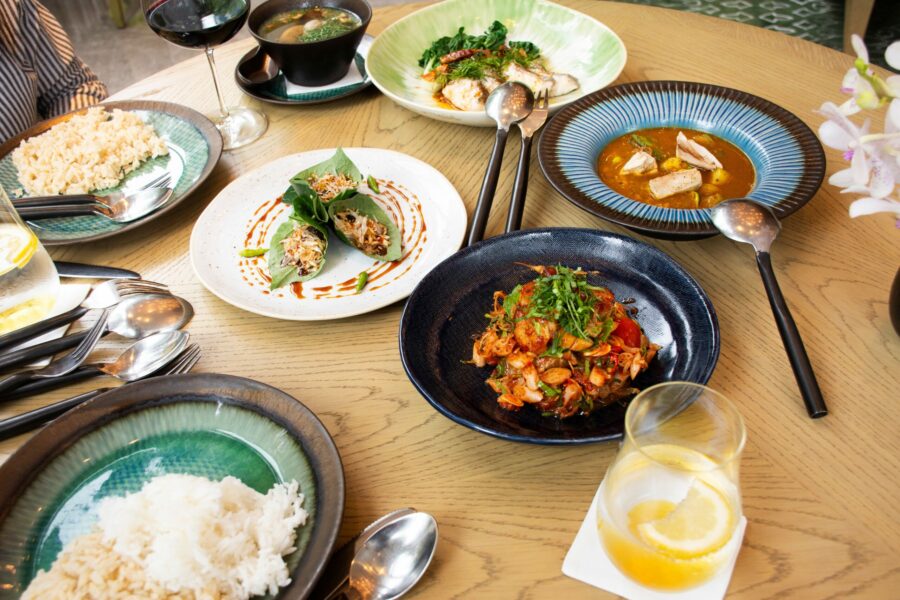 In some destinations, you have to keep talking about developments in sustainability.’ De Greeff continues: ‘Also train journeys. Further destinations by train are still quite a challenge, because you may have to deal with delays and missing connections. Sometimes there is maintenance on the track and you have to keep checking the train updates for each destination. Traveling by train is really a conscious choice, but it’s not necessarily cheaper. That’s why not all customers opt for this.’ I book a trip to Vietnam with Fair2travel. What makes this distinctive ‘green’? ‘Within our offer, this is reflected in the possibility to travel more by public transport, to stay in people’s homes in homestays, and to travel to remote areas where local peoples are not yet so familiar with tourism. With every trip, we also encourage people to participate in community-based activities: activities run by the community, to which you as a traveler can contribute and thus experience a culture in a different way. The proceeds of this also remain largely or entirely in the community. We also have (multi-day) cycling and walking activities at many destinations, near and far, to encourage slow travel more.’ What are the long-term goals? ‘We would like to see all forms of tourism make greater strides in sustainability, and that we no longer have to offer flights with fossil fuels. It would also be nice if alternatives to flying became more easily accessible, for example through better train connections.
In some destinations, you have to keep talking about developments in sustainability.’ De Greeff continues: ‘Also train journeys. Further destinations by train are still quite a challenge, because you may have to deal with delays and missing connections. Sometimes there is maintenance on the track and you have to keep checking the train updates for each destination. Traveling by train is really a conscious choice, but it’s not necessarily cheaper. That’s why not all customers opt for this.’ I book a trip to Vietnam with Fair2travel. What makes this distinctive ‘green’? ‘Within our offer, this is reflected in the possibility to travel more by public transport, to stay in people’s homes in homestays, and to travel to remote areas where local peoples are not yet so familiar with tourism. With every trip, we also encourage people to participate in community-based activities: activities run by the community, to which you as a traveler can contribute and thus experience a culture in a different way. The proceeds of this also remain largely or entirely in the community. We also have (multi-day) cycling and walking activities at many destinations, near and far, to encourage slow travel more.’ What are the long-term goals? ‘We would like to see all forms of tourism make greater strides in sustainability, and that we no longer have to offer flights with fossil fuels. It would also be nice if alternatives to flying became more easily accessible, for example through better train connections. 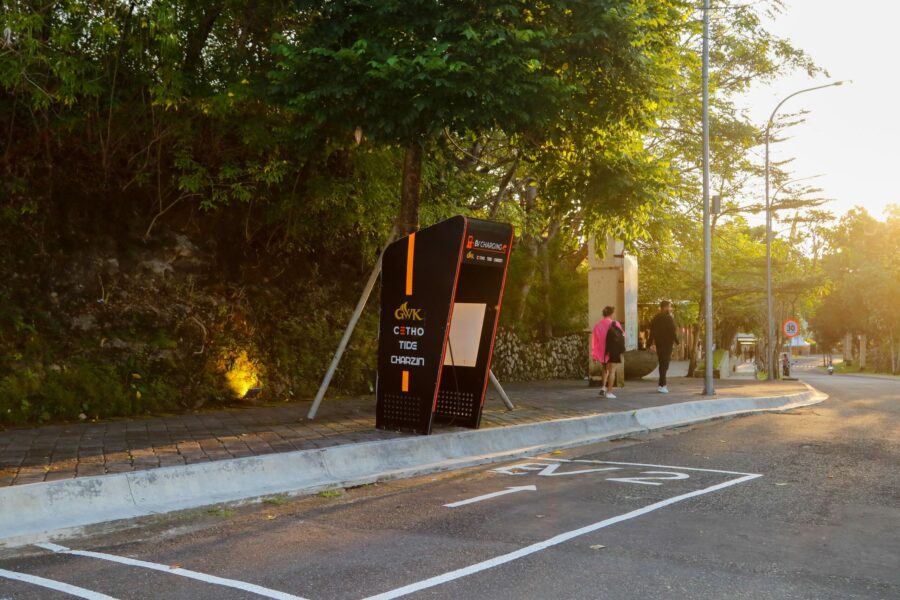 If we relate it to our own objectives, we want to make a sustainable choice possible in as many destinations in the world as possible. And with the impact we make as a social enterprise, contribute much more to local tourism. Yet another goal is to work more closely with independent travel agents or other organizations that are also looking for more sustainable travel for their customers.” What do you expect from the developments of sustainability within the industry in the coming years? Can it be done faster? ‘Making sustainability faster and better could be done, but then we would really be dependent on infrastructure and the will of governments to contribute to this. In Europe alone, much more could be done to improve the infrastructure of trains. Fortunately, we do see that almost all travel organizations have started to understand the importance of sustainability, and organizations are also increasingly acting on this. Consider, for example, overtourism: we prefer not to send people to busy hotspots, but rather to special alternatives.’ Avila Beach Hotel Sustainability is something we see more and more in the travel industry. The hotels on Curaçao, among others, are also focusing more and more on this important topic. This also applies to the Avila Beach Hotel, says Robbin Vogels (general manager of Avila Beach Hotel). ‘We are one of the few hotels on the island with a close relationship with the local population. This is mainly due to the fact that we are the oldest operational hotel on the island and therefore the setting for many warm memories, not only of (loyal) hotel guests, but also of the locals. Without the support and love of the local community, Avila would have been a different Avila. And the hotel is happy to repay this favor.” Local Schools Avila Beach Hotel has a long-standing relationship with a number of local schools. In the past, almost every employee of the hotel donated a small amount of their salary every month to the Orange School for many years. These donations were doubled by the management and they saved this to make a large investment once a year. The Oranjeschool no longer exists, but we still provide computers and other equipment and support for the Pedro Luis Brion School, Schotborgh school and Kolegio Don Sarto.
If we relate it to our own objectives, we want to make a sustainable choice possible in as many destinations in the world as possible. And with the impact we make as a social enterprise, contribute much more to local tourism. Yet another goal is to work more closely with independent travel agents or other organizations that are also looking for more sustainable travel for their customers.” What do you expect from the developments of sustainability within the industry in the coming years? Can it be done faster? ‘Making sustainability faster and better could be done, but then we would really be dependent on infrastructure and the will of governments to contribute to this. In Europe alone, much more could be done to improve the infrastructure of trains. Fortunately, we do see that almost all travel organizations have started to understand the importance of sustainability, and organizations are also increasingly acting on this. Consider, for example, overtourism: we prefer not to send people to busy hotspots, but rather to special alternatives.’ Avila Beach Hotel Sustainability is something we see more and more in the travel industry. The hotels on Curaçao, among others, are also focusing more and more on this important topic. This also applies to the Avila Beach Hotel, says Robbin Vogels (general manager of Avila Beach Hotel). ‘We are one of the few hotels on the island with a close relationship with the local population. This is mainly due to the fact that we are the oldest operational hotel on the island and therefore the setting for many warm memories, not only of (loyal) hotel guests, but also of the locals. Without the support and love of the local community, Avila would have been a different Avila. And the hotel is happy to repay this favor.” Local Schools Avila Beach Hotel has a long-standing relationship with a number of local schools. In the past, almost every employee of the hotel donated a small amount of their salary every month to the Orange School for many years. These donations were doubled by the management and they saved this to make a large investment once a year. The Oranjeschool no longer exists, but we still provide computers and other equipment and support for the Pedro Luis Brion School, Schotborgh school and Kolegio Don Sarto.  Eden Reforestation Project Starting in October 2019, the Avila Beach Hotel will plant one tree in Haiti for every room night booked directly through the website, through the Eden Reforestation Project. This is a non-profit organization in the United States. Through their network of ground reforestation partners, they fund tree planting in North America, South America, Asia, and Africa. ‘In this way, we give something back to nature for our and future generations.’ Pack for a Purpose The Avila Beach Hotel is a member of Pack for a Purpose, which encourages hotel guests to bring supplies useful to the Schotborgh school, Pedro Luis Brion school and Kolegio Don Sarto. And it catches on, because guests often bring a package of school supplies. With initiatives, such as Pack for a Purpose, the Avila Beach Hotel wants to contribute to the local community. Recycling One of the goals of the Avila Beach Hotel is innovation and sustainability. They try to save and recycle as much energy as possible. The hotel therefore received the international Travelife Gold Award in 2013 and also the local Sustainable Innovation Award 2013, which was presented for the first time in Curaçao by the Business Platform Environment. The aim is to increase efficiency in all business decisions. All opportunities for a better environment and the well-being of their employees as well as the community in Curaçao are fully exploited. ‘Together we can create a better world, even on such a small island as Curaçao,’ says Vogel.
Eden Reforestation Project Starting in October 2019, the Avila Beach Hotel will plant one tree in Haiti for every room night booked directly through the website, through the Eden Reforestation Project. This is a non-profit organization in the United States. Through their network of ground reforestation partners, they fund tree planting in North America, South America, Asia, and Africa. ‘In this way, we give something back to nature for our and future generations.’ Pack for a Purpose The Avila Beach Hotel is a member of Pack for a Purpose, which encourages hotel guests to bring supplies useful to the Schotborgh school, Pedro Luis Brion school and Kolegio Don Sarto. And it catches on, because guests often bring a package of school supplies. With initiatives, such as Pack for a Purpose, the Avila Beach Hotel wants to contribute to the local community. Recycling One of the goals of the Avila Beach Hotel is innovation and sustainability. They try to save and recycle as much energy as possible. The hotel therefore received the international Travelife Gold Award in 2013 and also the local Sustainable Innovation Award 2013, which was presented for the first time in Curaçao by the Business Platform Environment. The aim is to increase efficiency in all business decisions. All opportunities for a better environment and the well-being of their employees as well as the community in Curaçao are fully exploited. ‘Together we can create a better world, even on such a small island as Curaçao,’ says Vogel.
VvKR
Caroline de Greeff is also Sustainability Coordinator for the Association of Small-Scale Travel Organizations (VvKR), with over 450 members. In this role, she works together with the association’s Sustainable Working Group to support members in their sustainability. De Greeff sees that more and more members are focusing specifically on the sustainable travel niche. ‘For example, we see more and more members who focus on train travel, travel close to home and active travel, such as walking, sailing or cycling in Europe. Travel with a positive impact to distant destinations is also increasingly being offered. Moreover, a majority of the affiliated travel organizations are consciously working on making their travel offer and organizations more sustainable. Many members plant trees to capture CO2, more and more members are partners of Travelife and many members are working to reduce plastic and other waste.’ 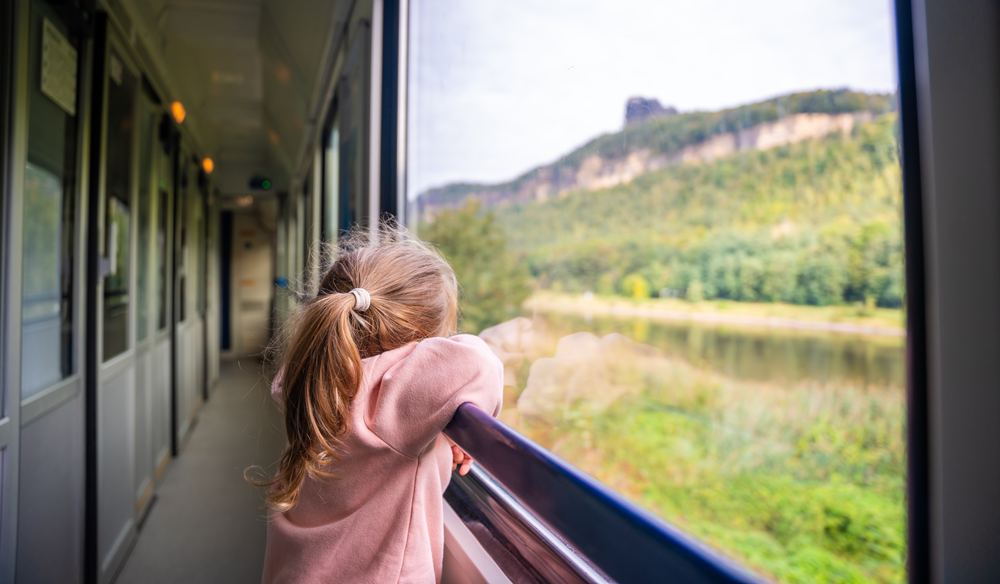 She also says: ‘The VvKR wants to remain a forerunner in more sustainable travel in the long term. Most of our members consciously choose to travel away from the crowd with their small-scale trips. In this way, they ensure a greater spread of tourism and income at the destinations. They also often have long-term relationships with partners and suppliers, which allows them to contribute to the local community together. In this way, they make a positive impact on the destinations. Because of the small scale, our members in particular can more easily adapt to changing circumstances, such as sustainability. Together with them, we will continue to work on these challenges of the future. Within the travel industry, we see that there is a lot of attention for sustainability. No organization dares to say that sustainability is not important. At the same time, much remains to be done. It would help us enormously if the infrastructure for more sustainable travel was supported more and faster by governments. Think of cheaper and better train traffic, for which the tickets can easily be booked for further train journeys as well. But also to making aircraft more sustainable more quickly, making travel to distant destinations more sustainable.’
She also says: ‘The VvKR wants to remain a forerunner in more sustainable travel in the long term. Most of our members consciously choose to travel away from the crowd with their small-scale trips. In this way, they ensure a greater spread of tourism and income at the destinations. They also often have long-term relationships with partners and suppliers, which allows them to contribute to the local community together. In this way, they make a positive impact on the destinations. Because of the small scale, our members in particular can more easily adapt to changing circumstances, such as sustainability. Together with them, we will continue to work on these challenges of the future. Within the travel industry, we see that there is a lot of attention for sustainability. No organization dares to say that sustainability is not important. At the same time, much remains to be done. It would help us enormously if the infrastructure for more sustainable travel was supported more and faster by governments. Think of cheaper and better train traffic, for which the tickets can easily be booked for further train journeys as well. But also to making aircraft more sustainable more quickly, making travel to distant destinations more sustainable.’
